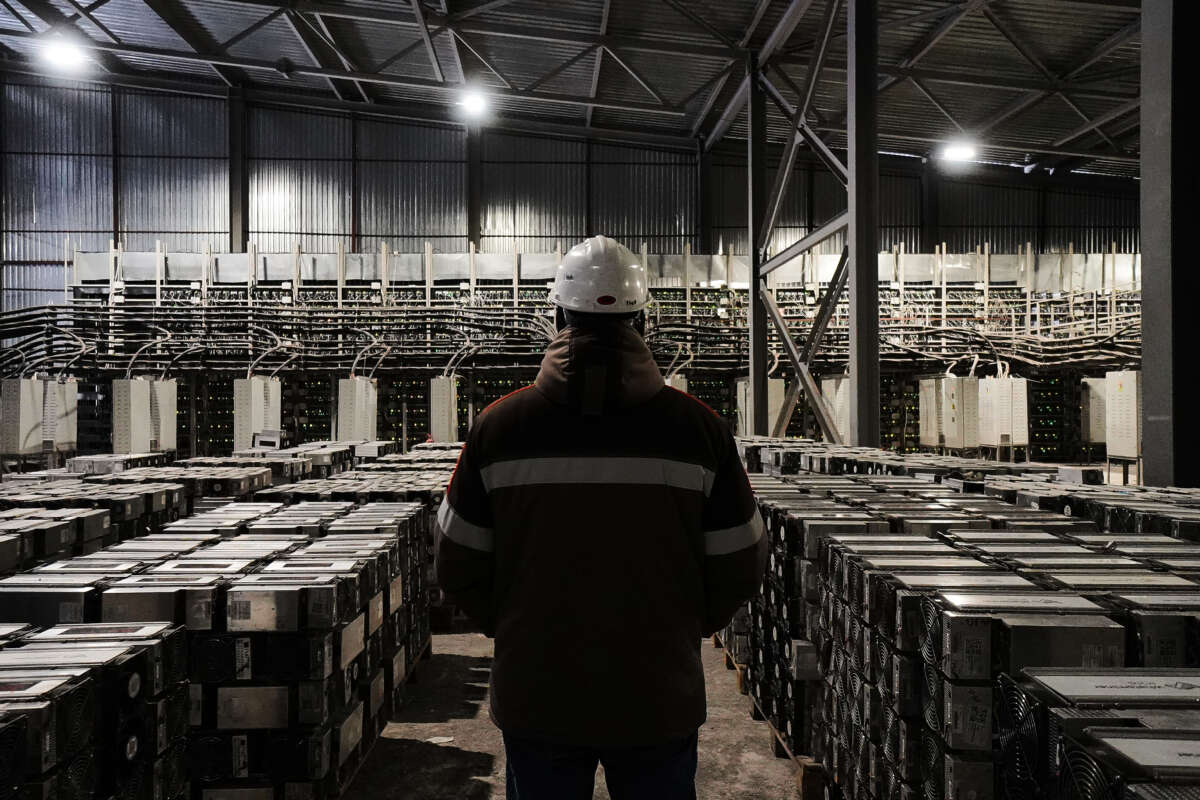Did you know that Truthout is a nonprofit and independently funded by readers like you? If you value what we do, please support our work with a donation.
Three climate action groups said Friday that New York’s decision to allow a Canadian cryptocurrency mining company to control a fracked gas power plant is a clear violation of the state’s landmark climate protection law as they sued a state commission in Albany County Supreme Court.
The lawsuit, filed by Earthjustice on behalf of Clean Air Coalition of Western New York and the Sierra Club, comes four months after the New York Public Service Commission approved the sale of the Fortistar North Tonawanda power plant in the Buffalo area to Digihost International.
The transfer gave Digihost approval to operate round-the-clock, 365 days per year, increasing the facility’s greenhouse gas emissions up to 3,500% as it conducts its proof-of-work cryptocurrency mining operation, said Earthjustice.
As Sierra Club and Earthjustice explained in a report last year:
The process effectively entails millions of computing machines racing to solve a complex, but meaningless, problem. In Bitcoin’s algorithm, for example, the computer or mining machine that successfully solves the problem is rewarded with Bitcoin (and functionally verifies the blockchain). As long as the reward is high enough (i.e., the price of Bitcoin is high enough), miners will attempt to use more—and faster—mining machines to increase their chances of winning that reward.
“Top-down estimates of the electricity consumption of cryptocurrency mining in the United States imply that the industry was responsible for an excess 27.4 million tons of carbon dioxide (CO2) between mid-2021 and 2022—or three times as much as emitted by the largest coal plant in the U.S. in 2021,” the report said.
As it announced the lawsuit Friday, Earthjustice noted that Digistar could massively ramp up emissions as the rest of the state works to comply with the 2019 Climate Leadership and Community Protection Act, which requires all state agencies to consider the implications for disadvantaged communities and for emissions reduction when making decisions.
“New York’s landmark climate law means that agencies can’t ignore the climate and environmental justice consequences of their decisions. We’re calling on the court to hold agencies accountable and ensure that cryptocurrency miners don’t get a free pass to heat our planet and damage our communities,” said Dror Ladin, senior attorney at Earthjustice.
The plant in question is located near a number of neighborhoods that have been designated by the state as “disadvantaged communities,” where residents face a greater environmental burden than 90% of New York. Cryptomining at Fortistar North Tonawanda could raise the residents’ risk of developing asthma, cancer, and other conditions that could lead to premature death.
“Everything changed when New York state enacted its landmark climate law,” said Roger Downs, conservation director for the Sierra Club Atlantic Chapter. “The Public Service Commission can no longer ignore the impacts of its decisions, especially when they run counter to public benefit and endanger the air quality for communities already burdened with a disproportionate amount of pollution. Allowing a failing gas fired power plant to be acquired and revived by an energy-hungry cryptomine, without considering the environmental impacts, runs counter to the intent of the climate law and the justice it seeks to advance.”
The local conservation group Seneca Lake Guardian applauded the groups for challenging the commission’s approval of the sale.
“Clean Air will continue to fight against the burning of fossil fuels to generate power for cryptocurrency mining, especially in residential areas like North Tonawanda,” said Chris Murawski, executive director of the Clean Air Coalition of Western New York.
Media that fights fascism
Truthout is funded almost entirely by readers — that’s why we can speak truth to power and cut against the mainstream narrative. But independent journalists at Truthout face mounting political repression under Trump.
We rely on your support to survive McCarthyist censorship. Please make a tax-deductible one-time or monthly donation.
